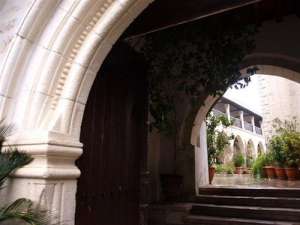
Cyprus as a distinguished wine-growing region is driven by winemakers’ quest for distinctive crafted wines that embody the unique story of its varied viticultural landscape.
A Journey to a 5500 year tradition
Present-day Cyprus wine, has fully turned its attention to the vineyards. It is safe to say that the profound dedication towards Cyprus’ better adapted grape varietals in today’s current climate, has been sought out to complement or bring out best of the traditional indigenous varieties of Mavro (for red and rosé wines) and the white grape Xynisteri, and its most renowned Commandaria winemaking (Koumandaria).
The historic backdrop and continued uninterrupted winemaking history that the island possesses, are but one of the few reasons that make a trip to the wine villages of Cyprus worthwhile.
Hand-selected by farmers for thousands of years for their drought-resistance, these ancient indigenous varieties grow on their own rootstocks as ungrafted bush vines, dry-farmed on volcanic soils and layered limestone terraces bound to the Troodos massif, the most unique tectonic section of oceanic crust to have surfaced the earth 10 million years ago.
Modern-day winemaking re-emerged within a redimensioned viticultural landscape around 7.000 Ha. Adoption of EU geographical indications for dry and sweet country wines Lemesos, Pafos, Lefkosia and Larnaka, evolve alongside the protected designations of origin for altitude vineyard areas of Panayia, Pitsillia, Krasochoria Lemesou, Laona Akamas and Commandaria.
Reinterpreting white Xynisteri and red Mavro grapes has provided an opportunity to revive nearly extinct varieties such as Promara, Morokanella, Spourtiko, Lefkada, Vasilissa, Ofthalmo, Maratheftiko, and Yiannoudi. This ongoing pursuit of wines with unique character also embraces international varieties like Chardonnay, Muscat, Sauvignon Blanc, Viognier, Black Muscat, Cabernet, Mourvèdre, and Syrah.
Cyprus Island winemaking emerges as a phylloxera-free vine sanctuary in the eastern Mediterranean, drawing on its ancient grape varieties grown at high altitudes for its winemaking. This resurgence has not only strengthened the island’s Mediterranean charm but has captivated wine enthusiasts alongside a glowing wine scene within an established gastronomic culture.